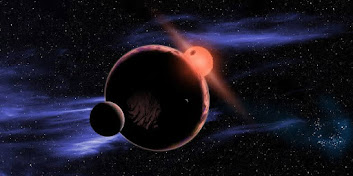Astrobiology
The study of the origins, evolution, distribution and future of life in the universe is known as astrobiology. Astrobiology, previously known as exobiology, is a multidisciplinary science that investigates the origins, early evolution, distribution, and future of life in the universe. Astrobiology is the study of whether or not alien life exists, and if so, how we can detect it. This interdisciplinary field necessitates a thorough knowledge of biological, planetary, and cosmic events. The quest for habitable environments in our Solar System and on planets orbiting other stars, as well as the search for evidence of primordial chemistry or life, is all part of astrobiology.
Searching for evidence of prebiotic chemistry or life on Solar System worlds such as Mars, Jupiter's moon Europa, and Saturn's moon Titan; and studying the origins, early evolution, and assortment of life on Earth. Astrobiology combines molecular biology, biophysics, biochemistry, chemistry, astronomy, physical cosmology, exoplanetology, and geology to examine the possibility of life on other worlds and aid in the identification of biospheres that are distinct from our own.
While astrobiology is still a relatively new discipline, it has a bright future. The National Aeronautics and Space Administration (NASA) and the European Space Agency (ESA) both use astrobiology research in their planning for current and future space missions. Many recent expeditions have focused on looking for traces of previous life on worlds in our own solar system. If you want more information check the link given below:



